Search Results
Showing results 161 to 180 of 682

Silly Putty Investigation
Source Institutions
In this activity (located on page 7 of PDF), learners explore how Silly Putty was first invented and then attempt to make a batch of their own.

3-2-1 POP!
Source Institutions
In this physics activity, learners build their own rockets out of film canisters and construction paper.
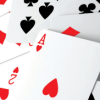
Odd Man Out
Source Institutions
In this math game (Page 14 of the Are You Game? PDF), learners determine the probability of getting an even versus an odd product using the numbers on a regular deck of cards.

Foam Tower
Source Institutions
In this activity (page 1 of the PDF under SciGirls Activity: Water Slides), learners will whip up some suds with a cup of water and a tablespoon of dish soap until the bubbles are stiff enough to star
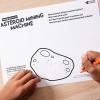
Exploring the Solar System: Asteroid Mining
Source Institutions
In this activity, learners will imagine the challenges and opportunities of asteroid mining.
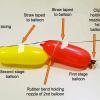
Achieving Orbit
Source Institutions
In this Engineering Design Challenge activity, learners will use balloons to investigate how a multi-stage rocket, like that used in the Interstellar Boundary Explorer (IBEX) mission, can propel a sat
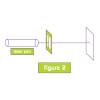
Forensic Science: Hair Sample Investigation
Source Institutions
This activity (on page 2 of the PDF under SciGirls Activity: Forensics) is a full inquiry investigation into how hairs from a crime scene are matched to suspects.
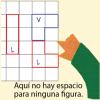
Rellénelo
Source Institutions
Los jugadores toman turnos para añadir figuras de tres cuadrados a la cuadrícula. Intenten encajar sus figuras en la cuadrícula de modo que bloquee al otro jugador.

Divide and Conquer: Santa's Dirty Socks
Source Institutions
This activity introduces the idea of "divide and conquer" using a fictitious but serious problem--a pair of dirty socks has accidentally been wrapped in one of the presents that Santa is about to deli

My Insect
Source Institutions
In this activity, learners use information gathered from a variety of sources to design and make their own insect.

The Menu Game at the Terribly Terrific Taco
Source Institutions
In this math game (Page 15 of the Dining Out! PDF), learners figure discounts and/or profit increases for various food totals. Learners add decimals to $100.

Glow Up
Source Institutions
In this activity, learners explore chemiluminescence and fluorescence. Learners examine 3 different solutions in regular light, in the dark with added bleach solution, and under a black light.
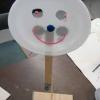
Bobbing Eyeballs
Source Institutions
In this activity, learners use simple materials and basic tools to construct a special toy to explore pendulums. As the head of the toy bobs one way, the eyeballs bob the other way.

Make Your Own Paper
Source Institutions
The Chinese invented paper made from plants and cloth about 2,000 years ago. Learners follow a similar process to make paper from recycled paper.

The Shadow Knows II
Source Institutions
In this activity, learners will measure the length of a shadow and use the distance from the equator to calculate the circumference of the earth.

Three Little Pigs Construction Company
Source Institutions
In this activity about problem-solving, learners build a house for the Three Little Pigs using twenty straws and two index cards.
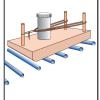
Newton Car
Source Institutions
In this activity, learners work in teams to investigate the relationship between mass, acceleration, and force as described in Newton's second law of motion.

The Snack Shop
Source Institutions
In this math activity (Page 11 of the Dining Out! PDF), younger learners count out the total amount of money needed to purchase trail mix using the fewest number of bills/coins possible.

Tangram Challenge
Source Institutions
In this activity about tangrams, learners print and cut out their own tangram shapes and solve puzzles by fitting these geometric pieces together in a variety of ways.
Special Snack: Budgeting for Health
Source Institutions
In this activity, learners will plan a snack within a budget. With a $20 limit (theoretical) to spend on snack for everyone, learners look over grocery store circulars and make their shopping lists.
